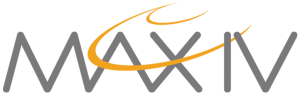ESS/MAX IV Control System Workshop
→
Europe/Stockholm
MAX III (MAX IV)
MAX III
MAX IV
Fotongatan 2
, , ,
Description
This is a joint workshop between ESS and MAX regarding the control system.
The sessions are:
| Date | Meeting Room | Session |
|---|---|---|
| 17 Nov - 09:00 - 12:00 | MAX III (MAX IV) | Alarm handling. Selection and configuration of alarms based on operational modes. Alarm acknowledgment policy. |
| 17 Nov - 09:00 - 12:00 | Tycho (ESS) | Deployment and monitoring of control systems |
| 17 Not - 09:00 - 12:00 | Brahe (ESS) | Data archiving. Selection criterion and data retention policies for control systems. |
| 22 Nov - 12:00 - 16:00 | MAX III (MAX IV) | Collaboration with operators and scientific users |
| 22 Nov - 12:00 - 16:00 | Tycho (ESS) | Test and test automation for control systems |
|
22 Nov - 12:00 - 16:00 |
Brahe (ESS) | Onboarding, knowledge sharing and knowledge retention in a control systems team |
Participants

